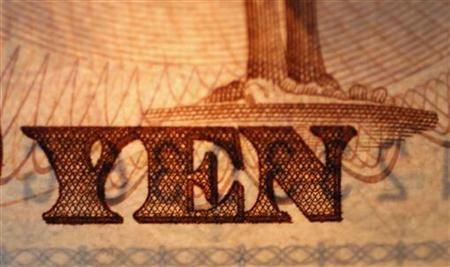Japanese Yen Touches Seven-Month Low Amid Stimulus Measure Expectations

Japanese yen hit the lowest against the U.S. dollar in the last seven months Monday amid reports that policymakers in Japan were under pressure to further loosen the monetary policy to revive the economy.
The dollar touched 81.59 yen Monday as market participants returned to the mood of risk aversion. The relative prospects for monetary policy have been the key drivers of the yen-dollar exchange rate in recent months.
Last week, Japan faced a sudden development on the political scene with Prime Minister Yoshihiko Noda dissolving the Diet ahead of the general elections to be held Dec. 16. Investor confidence rose amid the hope that the main opposition, the Liberal Democratic Party, led by Shinzo Abe, the proponent of aggressive monetary easing measures, would win the next elections.
“The Bank of Japan could also come under pressure to ease further, particularly from the government. However, financial conditions are already very accommodative and have arguably reached a state of saturation. As such, we doubt the Bank will expand its asset purchase program again this year but instead focus on growth-supporting measures such as the recent cheap loans scheme,” Capital Economics said in a note.
With Japan's gross domestic product contracting in the third quarter compared to that in the previous quarter, policymakers are under pressure to further ease the monetary policy. The data released earlier this month by the Cabinet Office showed that the country’s GDP, which measures the annualized change in the inflation-adjusted value of all goods and services produced by the economy, shrank to 0.9 percent in the quarter ending Sept. 30, down from a 0.1 percent rise in the previous three months.
Last month, the Bank of Japan announced more monetary easing policies and expanded the asset purchase program (APP) by about 11 trillion yen ($138-billion). This brings the total size of the APP to about 91 trillion yen, of which 25 trillion yen is in loans and the remaining 66 trillion yen is for asset purchases. The policy board agreed on a further five-trillion yen each of Japanese government bonds and treasury bill purchases and announced 0.91 trillion yen of purchases of risk assets.
Meanwhile, even if the U.S. fiscal cliff is avoided, an escalation of the euro zone crisis should maintain safe haven demand for the yen, at least from Japanese investors preferring to keep money at home which would keep the currency firm.
© Copyright IBTimes 2025. All rights reserved.





















